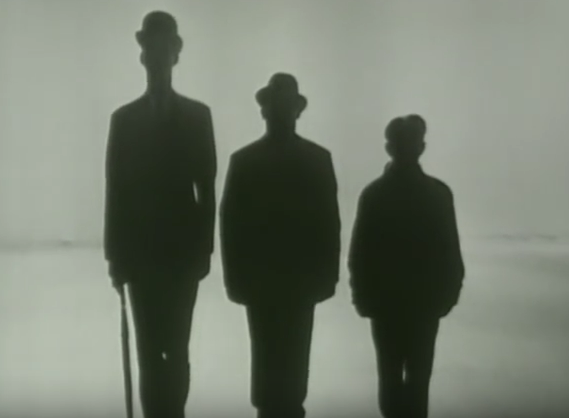
Yup! That old chestnut was being articulated, debated or whatever yesterday at a keynote with of course the obligatory high profile panel lined up.
A note about the session in the show catalogue said that questions around how to implement best in class approaches to business relationships as well as the use of modern technologies and systems that can help deliver a different result would be core to this panel’s content.
It continued: “As an industry, we can gain from the challenge of breakthrough ideas in this session from best in class performers inside and outside of our industry.”
For more than 25 years I’ve witnessed discussion after discussion and read paper after paper on the subject. I went to the then revolutionary CRINE (Cost Reduction Initiative for the New Era) conference of 1993 that seeded massive and very necessary change, at least in the UK upstream industry.
I won’t bore you with too many of the buzzwords that emerged from that initiative, but some of them are still around the industry today.
However, “partnering and alliancing” was a piece of terminology used to describe changes that became central to reshaping the relationships between North Sea licence partners; twixt operators and the supply chain, or rather main contractors; and between main contractors and the supply chain per se.
And there was even a specially written sketch that mimicked the famous BBC TV skit on the UK’s class structure by comedians John Cleese, Ronnie Barker and Ronnie Corbett.
You can find it on YouTube:
https://www.youtube.com/watch?v=K2k1iRD2f-c
The original, sometimes known as “I know my place”, went as follows.
Cleese: (In bowler hat, black jacket and pinstriped trousers)
I look down on him (indicates Barker) because I am upper-class.
Barker: (Pork-pie hat and raincoat)
I look up to him (Cleese) because he is upper-class; but I look down on him (Corbett) because he is lower-class. I am middle-class.
Corbett:(working class cloth cap and muffler)
I know my place. I look up to them both. But I don’t look up to him (Barker) as much as I look up to him (Cleese), because he has got innate breeding.
Cleese: I have got innate breeding, but I have not got any money. So sometimes I look up (bends knees, does so) to him (Barker).
Barker: I still look up to him (Cleese) because although I have money, I am vulgar. But I am not as vulgar as him (Corbett) so I still look down on him (Corbett).
Corbett: I know my place. I look up to them both; but while I am poor, I am honest, industrious and trustworthy. Had I the inclination, I could look down on them. But I don’t.
Barker: We all know our place, but what do we get out of it?
Cleese: I get a feeling of superiority over them.
Barker: I get a feeling of inferiority from him, (Cleese), but a feeling of superiority over him (Corbett).
Corbett: I get a pain in the back of my neck.
In the CRINE sketch, the patrician tall guy was the operator, the contractor corresponded to Ronnie Barker and the wee guy – aka supply chain was the short guy.
There was an underlying truth in the Cleese-Barker-Corbett sketch that prevails. Britain is as class conscious today as it probably ever was, fuelled of course by the upper ranks being swelled by fat-cat nouveau riche who left the middle and working classes way behind.
Class pervades probably every strata of British society and when it comes to the corporate world, the big companies bag the bulk of the Oxbridge production line. Middle size firms trawl the other significant unis, and smaller firms make do with what they can get from wherever.
That may seem a sweeping statement and I suppose it is. But, just look around the office, check out the calibre of your management and take a close look at your employment contract and benefits package. It will tell you a great deal.
The picture painted by the skit on the “I know my place” sketch is I think still with us today.
Frankly, little different too is the discussion and debate around how to fix the relationships for the long-term and to the benefit of all.
What has changed, however, is that the debate today is being conducted by a more or less entirely different set of people.
There is it seems little corporate memory of what went before, including what was/is regarded as best in class in other business and industry sectors. Same thing applies to safety, by the way.
I’m not convinced that there are many new ideas around today; but there are plenty of old ones that have been repackaged and relabelled.
Bit like Offshore Europe I suppose. Various folk have bent my ear over the past three days saying there really wasn’t much that was new though there was a marked absence of heavy metal (wellheads, etc). Busy enough but ordinary. No sparkle.
I quite liked the partnering and alliancing term coined during the CRINE period. But you don’t hear it much these days. Nor does that other once fashionable term “gain-sharing” surface much.
Instead it’s all about collaboration, collaboration, collaboration.
As I’ve said to a fair few people since the world became fashionable in this industry, there was a time when collaborators were put up against a wall and shot!
Leaving that aside, what hasn’t changed one jot is the owners of small companies at the bottom end of the North Sea food chain complaining to me that they’re being shafted despite all the fine words at conferences, breakfasts, lunches, suppers and posh dinners.
Oh dear!
Recommended for you
